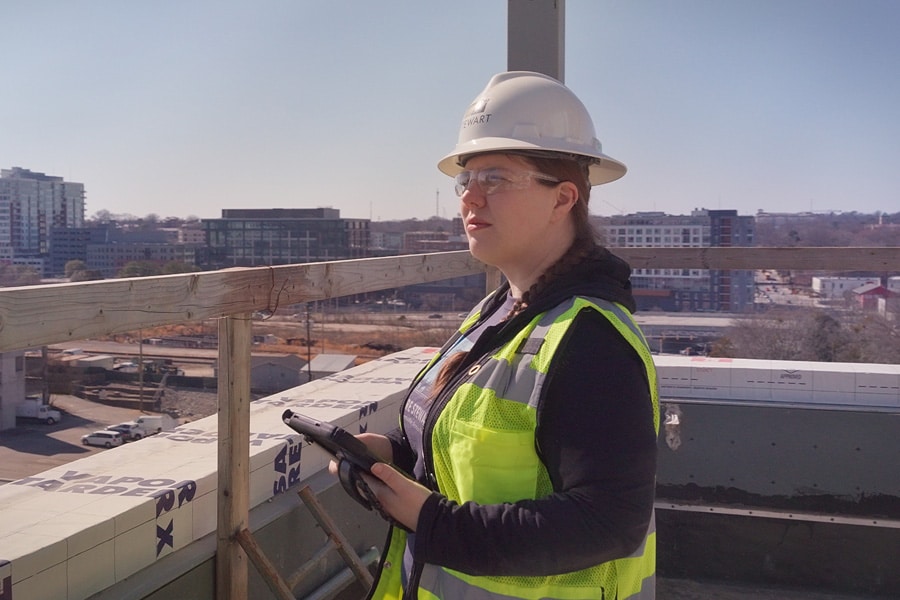At the University of Southern California, Jacqueline Chen’s free time is often spent with Trojan Shelter, a student-led organization that provides housing for college students who are experiencing housing insecurity or homelessness.
For Chen, a civil engineering student, the work to operate and grow the nonprofit is similar to construction. Trojan Shelter doesn’t just focus on putting a roof over students’ heads. It’s also about providing the foundation that they need to find stability—from food and furniture to clothes for a job interview.
“It’s a lot like building a building,” said Chen, who serves as the group’s co-president. “The end goal is to have the building built and not have it crash and fall. With Trojan Shelter, the end goal, in a smaller sense, is to house the student and provide support for them, so that they can find permanent housing … a home that they can call their own.”
As Chen supports peers through Trojan Shelter, she’s looking for the most effective way to help them build that foundation, maximizing every resource at her disposal. And as she sets her sights on her future career, Chen is thinking about doing the same in construction through technology.
Chen, one of two winners of the “Innovation Scholarship” awarded by Construction Progress Coalition and Bluebeam, will graduate with an undergraduate degree in civil engineering in the spring of 2023. She’ll then remain at USC to earn a master’s degree in data science in 2024. “What excites me about technology in the construction industry is the potential on how efficient it can make every single process,” Chen said.
‘How is the industry so behind?’
When Chen was a high school student perusing possible college majors, the flexibility of civil engineering drew her in. “I saw a lot of freedom with myself, pursuing whatever I wanted—environmental, construction, structural,” she said. “All these different types of routes I could go into.”
Her introduction to the use of technology in construction came during a summer stint helping a USC professor with a literature review focused on technological advances in construction. As Chen read the research, she learned that construction is among the least technologically advanced industries.
In a world where technology is ever-present, “that just baffled me,” Chen said. “I was like, how is this industry so behind?”
Her growing interest in the potential of technology in the industry is one reason she chose to intern for Suffolk Construction in the summer of 2022. There, Chen helped with workflow communication on the residential side of Suffolk’s massive job to renovate the Waldorf Astoria in New York City.
Through its Suffolk Technologies, the company is actively investing in and collaborating with construction and real estate technology startups. Since 2019, Suffolk has supported 24 companies that work in robotics, automation, smart building themes and more, according to the company’s website.
“They are so focused on the technological advances of the construction industry,” Chen said of Suffolk.
Still, Chen said there’s plenty of room for more innovation to eliminate the need for crews to spend hours on time-consuming, mundane tasks—physically counting the number of installed toilets, for example, or whether every hole in a window frame is caulked. And technology comes with an added benefit: using new and emerging solutions can help lure talented young workers like Chen to an industry that’s aging and in the midst of a critical labor shortage.
“We live in a generation that’s so driven by technology, incorporating technology into our day-to-day jobs just makes sense,” Chen said. “People in this generation know how to use technology, so it wouldn’t be too big of a learning curve. And people that don’t know how to use technology can be trained. There’s an incentive for both parties to use technology because it just makes everything faster and more efficient.”
‘Too much information’
Chen won the Innovation Scholarship with a project that revolves around a data exchange map designed to reduce conflicts between subcontractors and the delays that can come from them. As part of the project, she asked construction professionals about top challenges in their work. A common response: “There’s just too much information. There’s no way to keep up with all this information,” Chen said.
As she considers her future career and the benefits of a data science degree, Chen is interested in helping to solve that problem—finding ways to slice, dice and disseminate data in ways that could make an impact in the industry.
Questions she has include: How can data be condensed? And how can various technologies be integrated to augment and improve how buildings are built? New innovations and solutions provide answers. “There is a lot of technology out there that can be adapted to the construction industry,” Chen said.















